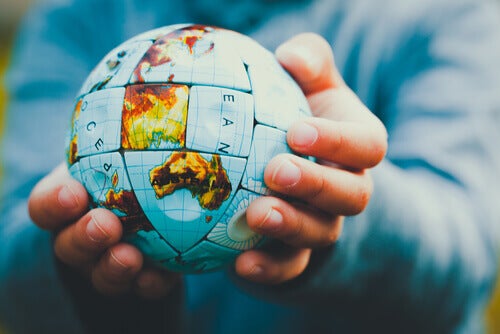In July 2015, member countries reached a final agreement on the Sustainable Development Goals, an agreement in which they pledge to work to make people around the world live better, without damaging the planet.
The Sustainable Development Goals (SDGs) are a United Nations-led initiative that sets out 17 Sustainable Development Goals, with 169 goals designed to transform the world, which will work towards the Sustainable Development Goals by 2030.
The Sustainable Development Goals (SDGs) are
Sustainable development is one that improves living conditions in the present without compromising the resources of future generations. Development is not sustainable when we spend all our resources now and leave nothing to future generations.
To ensure sustainable development, we must work together to bring about important changes to transform ourselves into a fairer and more equitable society, and we must also take positive steps that contribute to sustainable development, such as respect for others and the planet.
UNESCO is the United Nations Educational, Science and Cultural Organization, which contributes to the implementation of the Sustainable Development Goals (SDGs) through its work in the fields of education, natural sciences, social and human sciences, culture and communication and information.
In UNESCO’s education sector, education is the top priority, as it is an essential human right and the basis for peacebuilding and sustainable development.
UNESCO provides global and regional leadership, strengthens national education systems and responds to the global challenges of our time through education.
It is the largest political, economic and social organization in existence, created in 1945, of which almost every country in the world is a member. There are currently 193 Member States of the United Nations.
It has a responsibility to maintain peace and security in the world, to help solve the problems affecting all, to promote respect for the human rights of all, and to help countries work together in this regard.
Human rights are the rights inherent in any person, regardless of nationality, place of residence, sex, national or ethnic origin, colour, religion, language or any other condition.
We all have the same rights without discrimination. These rights are interdependent, interdependent and indivisible.
The Universal Declaration of Human Rights is a milestone in the history of human rights. It is a document prepared by representatives from all regions of the world, with different legal and cultural backgrounds. The Declaration was proclaimed by the United Nations General Assembly and establishes fundamental human rights that will be protected worldwide and translated into more than 500 languages.
Education for Development (EPD) aims to improve people’s knowledge, critical thinking and global worldview, starting from everyday reality and combating situations of inequality, promoting positive and lasting social change over time.
This education brings together different elements that make up its theoretical basis: social transformation, interculturality, human rights, sustainable development goals, gender, equity, social justice, solidarity, women’s rights, among others; all this to move towards global citizenship, global justice, equity and human rights realization.

